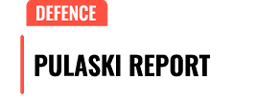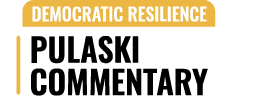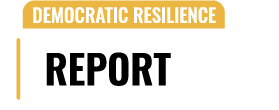“Pulaski Reports” is a series of extensive and in-depth analysis created by our experts. They cover a wide variety of topics such as international security, defence, geo-politics and social and economic issues.
Responsible for the publishing process of the Pulaski Reports is Tomasz Smura tsmura@pulaski.pl
“Pulaski Reports” is a series of extensive and in-depth analysis created by our experts. They cover a wide variety of topics such as international security, defence, geo-politics and social and economic issues.
Responsible for the publishing process of the Pulaski Reports is Tomasz Smura tsmura@pulaski.pl

Published: September 19, 2023
The large-scale Russian invasion of Ukraine at the beginning of 2022 has surprised many experts and is a consistent, heavy reminder to the European people that war in Europe is not a matter of the past.

Published: September 12, 2023
China’s assertiveness has been growing on the global stage and has become one of the most significant challenges for the Western world.

Published: June 22, 2023
If Russian forces continue to develop in such a manner and start applying similar philosophy to larger formations they could become a much more cohesive and effective fighting force with advanced battle tactics and access to vast amounts of men and resources to execute them.

Published: January 24, 2023
Since the Russian invasion of Ukraine on 24th February, 2022 Poland has become a new frontline state and the most important hub of military, economic and humanitarian aid for Ukraine.

Published: December 19, 2022
Ukraine’s Armed Forces have been battling the Russian invasion on land, at sea, in the air and in cyberspace since February 24 2022. Despite the disparity of forces that is obvious to all analysts, Ukraine did not collapse in the first weeks of the war, and over time has even been tempted to regain some of the territories lost in the initial phases of the conflict.

Published: November 10, 2022
On February 24, 2022, Russia extended its armed aggression against Ukraine, unleashed in 2014 with the illegal annexation of the Autonomous Republic of Crimea, and with the temporary occupation of certain areas of Donetsk and Luhansk regions.

Published: July 18, 2022
The maritime environment has invariably remained a key facilitator in all kinds of globalisation processes for hundreds of years. Humanity has entered a new level of development of socio-cultural, economic, political and military relations because of the possibility of efficient use of waterways.

Published: February 4, 2022
NATO was founded as an organisation bringing together twelve countries, eleven of which had direct access to the sea, most of which being strongly sea-oriented. This maritime orientation is, with the North Atlantic as its geographical centre, also reflected in the alliance’s name (North Atlantic Treaty Organisation). However, over time (mainly after the end of the Cold War), its structure has changed significantly with the welcoming of numerous countries from Central and Eastern Europe. Still, not least due to its transatlantic nature, large parts of the Alliance’s activities remain focused on the maritime domain.

Published: October 3, 2021
We, the representatives of the Casimir Pulaski Foundation, the Antall József Knowledge Centre, EUROPEUM Institute for European Policy and the Slovak Security Policy Institute; have the privilege of presenting to you a special report, wtitten by sixteen senior defence experts and entitled “The V4 towards a new NATO Strategic Concept and the EU Strategic Compass”. The document is a summaryof a broader project entitled: “Returning to the roots of the Visegrad cooperation – coordinating V4 strategy towards NATO Strategic Concept and European defence autonomy” that is supported by the International Visegrad Fund.

Published: May 6, 2019
In any economic analysis of Nord Stream 2 the first question to be considered is the actual cost of the project. Over the last couple of years, a variety of publications have provided widely differing cost projections. The recent data suggest that Nord Stream 2 capital investment will reach €9,5-10 billion.

Published: November 6, 2018
At the Warsaw Security Forum 2018 the Casimir Pulaski Foundation presented three new reports: „European offensive in defense sphere – EDF, PESCO and CARD”, „From Newport to Brussels – NATO adaptation to the Russian threat” and „Balance Sheet of U.S. Allies and Implication for Alliance Policy”. All reports are available on the Pulaski Foundations websites.

Published: November 5, 2018
According to the National Security Strategy (NSS) of the Trump administration published in December 2017, today’s world is getting more competitive. The US and its allies are facing growing political, economic, and military competitions around the world. Two revisionist states, China and Russia, are challenging US prosperity and superiority as well as the liberal international order. The NSS also pointed out that strong relationships with allies are invaluable in order for the US to magnify its power and respond to the growing political, economic, and military competitions.

Published: November 5, 2018
For almost two years the European Commission and a group of most influential Member States (such as France, Germany and Italy) have been pushing the development of new initiatives in area of defense. The presentation of the Global Strategy of the European Union’s Foreign and Security Policy in June 2016 marked a major milestone in this area.

Published: July 20, 2018
On July 11 and 12 the North Atlantic Council meeting was held, on the Head of States and Governments level. It has been the third summit since illegal annexation of Crimea by Russia and its support of separatists in Eastern Ukraine, what caused a rise in tensions between NATO and Russia. That in turn has shown the need for implementing new defense and deterrence measures to reassure the countries located on the Alliance’s Eastern Flank.

Published: November 15, 2017
How to succeed in providing national cybersecurity? This question tops policy agendas for many European governments – and rightly so. Israel is acknowledged as a global cybersecurity leader, encompassing strategy, defense, research, capacity building, technology, entrepreneurship and human capital.

Published: April 28, 2017
As a former entertainment figure and reality TV star, Donald Trump has regularly engaged in personal attacks and made controversial claims on Twitter. Since entering the political sphere, as a whole Trump’s attacks have been comparatively more moderated and contained.

Published: November 18, 2016
The Casimir Pulaski Foundation, in partnership with the European Institute of Peace, held a seminar inaugurating the Peace and Stabilisation Strategies Programme, hosted by the Permanent Representation of the Republic of Poland to the European Union in Brussels on the 18th of May, 2016. The theme was, “Challenges and perspectives for EU response to conflicts in the European neighborhood – time for a new strategy.”

Published: November 17, 2016
Proliferation of weapons of mass destruction and missile technologies is a growing threat to NATO member states, their territories and citizens. Although the number of nuclear warheads around the world decreases, states’ nuclear capabilities continue to expand with development of ever-more precise delivery systems. Approximately 30 states around the World, including Iran and North Korea, possess or strive to acquire advanced missile technologies.

Published: November 2, 2015
This report takes a closer look at Poland’s air defence system, one of the cornerstones of state defence and security in general.

Published: March 30, 2015
3D printing, or addictive manufacturing, has been expanding its presence in our society at an impressive rate.

Published: January 23, 2015
The analysis of the economic and legal factors conducted in the report proved the current defence procurement system in Poland does not ensure involvement of the Polish industry in implementation of the Armed Forces Modernization Plan.

Published: December 4, 2014
Poland’s security environment is in a state of constant flux. As well as the new threats and challenges, such as terrorism, migration and cross-border crime, traditional threats are still very much present.

Published: June 23, 2014
The latest Pulaski Report includes description and comparison of the medium-range air defence system examined in the tender for "Wisła" system.

Published: February 6, 2008
The report tries to assess the influence of EU’s new Member States from Central Europe on the European Union’s Eastern policy in the years 2004-2007. It is based on the results of a mixed method study conducted in 2007 and 2008 among 60 EU officials (both desk officers and national diplomats) dealing with Eastern policy issues either in the European Commission and the Council of the European Union. The report answers questions concerning the types of developments happening on the EU agenda in the years 2004-2007, the major factors provoking these changes, and the role of new Member States, including Poland, in the forming of the EU’s Eastern policy.
